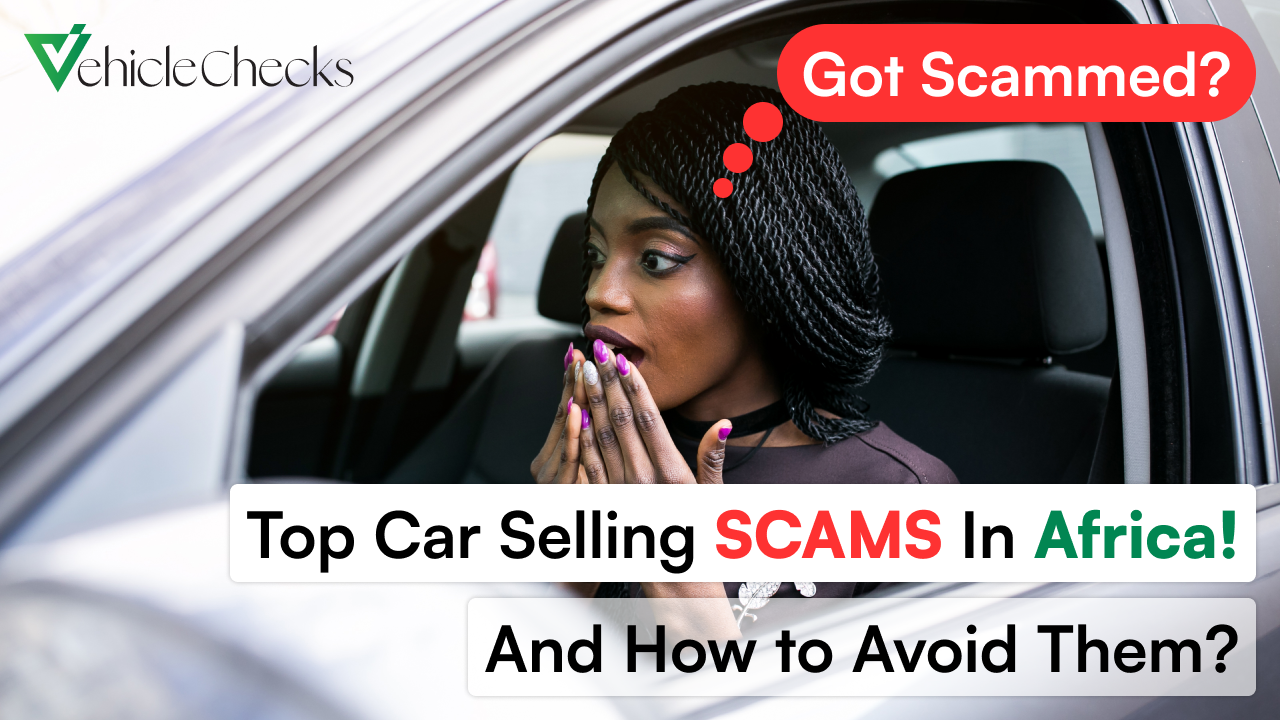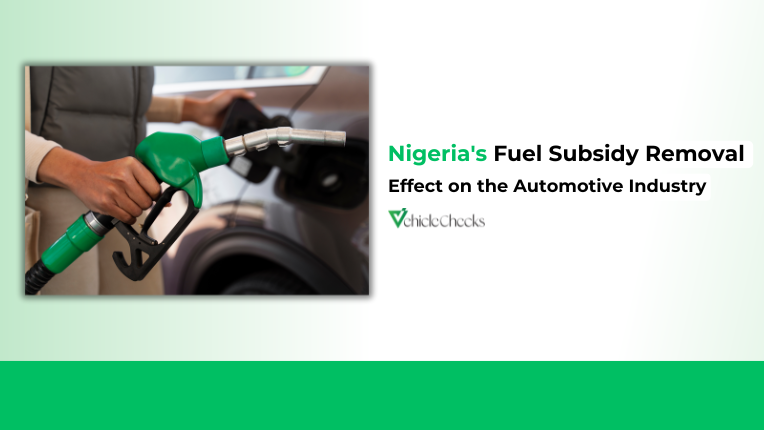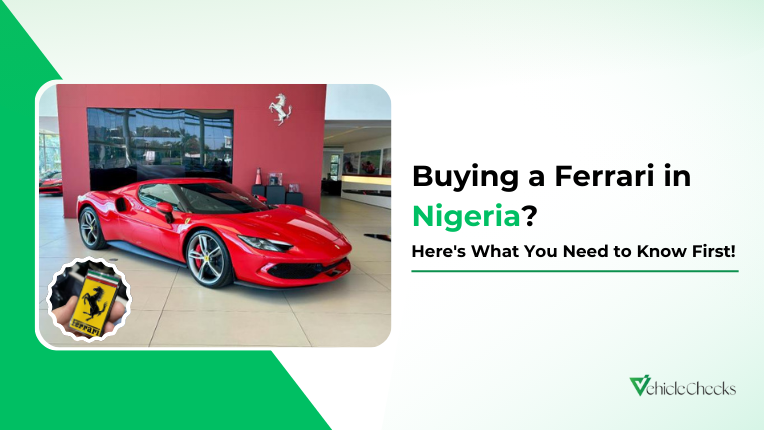Selling your car in Africa should be a straightforward and rewarding experience, allowing you to receive your hard-earned cash. However, it’s essential to be aware of wachungas, Ojoro people, 419, Wayo people, or as the Ghanaians call them, Sakawa boys (crooks or fraudsters) who might try to exploit you by stealing your car or your money.
The Nigerian and the African automotive industry could be a safe haven for you if you read this article carefully and take the time to implement all the suggestions given therein, otherwise you might find yourself easily defrauded.
Did You Know?
According to a 2021 report by the Nigerian Customs Service (NCS), fake online car auctions are a prevalent scam. These scams involve fraudsters posing as NCS officials; advertising seized vehicles at unrealistically low prices. Unsuspecting victims pay “processing fees” or deposits to secure the vehicles, only to lose their money and never receive a car.
To ensure a smooth transaction, here’s the comprehensive lowdown on common car-selling scams and how to avoid falling victim to them:
The Overseas Seller Scam
One of the most prevalent scams in car selling involves an alleged seller from overseas. This seller will typically offer a price significantly below the market value, making the deal seem too good to pass up.
They promise to handle all shipping arrangements and might even send what looks like legitimate documentation. However, before the transaction is complete, they’ll request you pay a “processing fee” upfront. This fee is supposed to cover shipping or paperwork costs. Do not fall for it! This “processing fee” is a complete fabrication, and once you pay it, the buyer will disappear, leaving you without your money and still in possession of your car.
This scam is so real that once you make the payment, you will see all the social media handles of this fake person or company disappear. In fact, if you do your research very well, it might surprise you to know that a friend or a relative who knew you needed a car had set up that fake foreign account just to target and scam you because they are confident you have the money readily available.
How to deal with this scam
To deal with this scam you need to be proactive in making research, one of the surest things to do is to find out the legitimacy of the individual or the company selling these products, simply having a 100k+ followers across all social media handles does not make an individual or a company real.
If you have doubts or suspicions, why not check to see if this person has made successful sales? Even so, most scammers might work as a group, presenting one person as a seller while others pose as previous clients.
The bottom line is to stick to verified, tested, and trusted dealerships and auction sites. Do not allow human greed to lure you into sending money to a scammer.
High Sense of Urgency
In this case, the price of the vehicle is usually normal, or the seller seems really open to negotiation. They make it appear as though they have an urgent need for cash in an attempt to sell you good-looking trash. This type of scam might not necessarily be done to you by a stranger.
In Nigeria, they could tell you “This my friend wants to ‘Japa’ (i.e., travel abroad), so he needs money to complete his travel documentation, that’s why he wants to sell this car.”
Usually, since the car is cheap, they may ask you to pay a commitment fee just to prove you’re serious about the deal. Once you make that payment, both the seller and the middleman will vanish! This includes someone you already know. At worst, the car can either be in a detestable mechanic condition or might as well be a stolen vehicle.
In Ghana, they claim they want to make the sale to pay the hospital bill of a sick relative; either way, they try to induce pity, empathy, and a sense of urgency!
Another common scam is the promise of a quick sale with immediate cash. In this scenario, the scammer will approach you with an enticing offer to buy your car on the spot. They’ll present themselves as eager buyers and might even flash some cash to build trust.
However, to secure the deal, they’ll claim that you need to pay a deposit or “holding fee.” This is supposed to ensure that the car is held for them and not sold to someone else. Once you hand over this fee, the scammer vanishes without a trace, and you’re left out of pocket with no buyer in sight. This scam preys on the seller’s desire for a fast, hassle-free transaction.
How to deal with this scam
Again, knowledge is power in this case; demand the VIN of the vehicle and use dedicated tools such as the Vehicle Checks online theft check tool to find out if the car has been stolen for free, make further research, and check out the historical information about the vehicle with a VIN check, or Chassis check. This will provide you with in-depth information about the vehicle, information which ordinarily will not be seen with a mechanical or a physical check.
Lastly, if a deal, either buying or selling, seems too good to be real, it probably is. Just take your time and avoid rushing matters. Reading articles on this website will also boost your knowledge base, do not forget to share this article if you find the information helpful.
The Phishing Flyer
Other risks to look out for when selling your car include phishing scams. In this kind of fraud, Fraudsters will pose as genuine buyers, and they will send you emails with links to poorly developed websites. Such Websites are created to have a professional look and feel since they imitate reliable car selling portals.
The aim is to bring you into telling your personal details or that of your bank through which the con artists can obtain your identity or even clean your bank accounts.
It is safer not to open any links from emails that you did not invite into your inbox regarding the sale of your car. In particular, it is necessary to avoid clicking on the links from emails claiming to direct you to the official website and always ‘type the address yourself’.
How to deal with this scam
Develop an eye for details, this simply means understanding that there is a difference between vehiclechecks.com and vehiclechecks.net.
In a world full of counterfeit money, it would not be advisable to study each counterfeit money since they come in varieties, but it is highly advisable to study the original money, arm with such knowledge, you can easily tell if a particular currency note is counterfeit or not, same is applicable in the African automotive industry, study the characteristics of the original website so you can know when you receive a fake mail or directed to a fake website.
The Mystery Mechanic
This is an often-used con in which a seemingly good Samaritan offers to check the car for the buyer. They might portray themselves as working professional mechanics or just car buffs.
However, their real intention is to work in harmony with the buyer to minimize the worth of a car or even fabricate mechanical issues, which in fact are fictional. This is done to lead you into letting your guard down and coming down to a significantly lower price.
READ ALSO: Exploring Vehicle Theft Statistics on Africa
How to deal with this scam
To counter this type of fraud, make sure that your person of trust or your personal mechanic checks the car before the deal is sealed. This makes the evaluation to be more standard and not influenced in any way.
Be sure to have a vehicle history report handy to prove that the vehicle has a good title or what title it has.
Also make research online to what price similar vehicles are being sold worldwide. Hence the following documents will be needed and helpful:
- Vehicle history report
- Mechanic report
- Service and maintenance history (if available)
- Market valuation proof
Odometer Cheat
Lorem ipsum dolor sit amet, consectetur adipiscing elit. Ut elit tellus, luctus nec ullamcorper mattis, pulvinar dapibus leo.
How to deal with scam
Check other parts of the vehicle for noticeable tear and wear, check the brake pads, and the clutch to see how well they have worn out, compare with what you see with reading on the odometer to know how long or how frequent the vehicle has been in use.
Ask for the vehicle papers, if possible the importation documents if available, the papers will give you an insight about the vehicle .
Ultimately, know that the average mileage per year of any vehicle is 20,000kilometers, hence if you are purchasing an 8 year old vehicle with a mileage of 40,000 kilometers just know that such a deal is quite fishy.
Above all, get yourself a vehicle history report from vehicle checks. This report will help you to know the actual mileage of the vehicle, especially if it is not a Nigerian made vehicle like Innoson or Nord.
Scanty Car Description Scam
This is why many car selling scams involve identical and often clearly plagiarized descriptions of the vehicles being sold. The said fraudulent listings hardly offer specific details regarding the condition of the car in question.
Nevertheless, they often consist of solo-line adverts that contain only the car’s name, model and year, which can be in no way helpful. However, one should be aware of such ads as they are mostly associated with a number of scams.
How to deal with this scam
To make sure one is not involved in a car scam, ensure one looks for detailed information in the car listing.
As to the genuine sellers, they will clearly describe the car along the necessary specifications to make the sale. To check the legitimacy of an advert, one can try copying the car’s description from the advert and paste it into Google.
If the description is present on several sites, this may mean that it has been copied by the seller, thus, the merchant is probably a scammer. It always enhances listing with well thought and quality descriptions.
Genuine sellers will also give you the VIN, with VIN you can utilize the free VIN decoder and learn more about the specifications of the vehicle and confirm if they tally with what the seller shared with you.
Did you know?
While car scams target sellers, there are also schemes that prey on unsuspecting car buyers in Africa. One such scam involves “accident salvage cars.” Fraudsters buy wrecked or heavily damaged vehicles, often ones declared totaled by insurance companies.
They then perform cheap repairs, sometimes cosmetic only, to hide the true extent of the damage. These cars are then sold at seemingly reasonable prices, but the unsuspecting buyer ends up with a car that may have hidden safety risks and ongoing mechanical problems.
READ ALSO: Does Vehicle Insurance Covers Theft?
Stay Safe with These Tips When Buying or Selling Cars
- Meet in Person: In any case possible, try to sell the car on the spot and allow the buyer to take it for an inspection. It helps one to establish that you are in fact dealing with a genuine buyer, and also makes the transaction more secure. Of all direct meetings, one can also minimize falling for scams , which are planned through interconnectivity.
- No Upfront Payments: While dealing with the real buyers one should never accept any type of upfront payments like ‘processing fees’ or ‘holding deposits.’ These calls are rather concerning and might be signals of possible fraud. In any way one should avoid such kinds of payments and other forms of monetary transactions and ensure that all payments should be done at the point of sale.
- Trusted Platforms: Cybercrooks will offer used cars at very low prices, but use reliable online markets with buyer protection policies or contact a reputable car dealer. Some of these platforms have measures put in place to avoid various cons, or to help users out in case of a disagreement. Trusted platforms complement your transaction by ensuring that the platforms you are using are safe.
- Trust Your Gut: That especially applies to actual selling since it’s always better to not complete the sale and avoid a loss than to continue the process when something is wrong. When in doubt, it is always wise to be safe than to end up ruining one’s decisions. Depending on your instincts, it may help avoid any situations that may be scams or activities that are on the verge of being fraudulent.
- Paperwork Help: Papers work of car sales involve a lot of complications and one may get lost when trying to understand these paperwork. If there is anything that you do not understand on the papers, seek the service of an attorney or someone who understands cars for sale. They are in a position to guide you on the legal aspects with regard to the compounding of the documents so as to be valid.
Thus, informed and with some precautions, you should be able to go on and sell your car without getting conned through the aforementioned wachungas. They should be alert, trust their ears, and negotiate for a favorable price for the selling of their vehicle. Happy selling!





